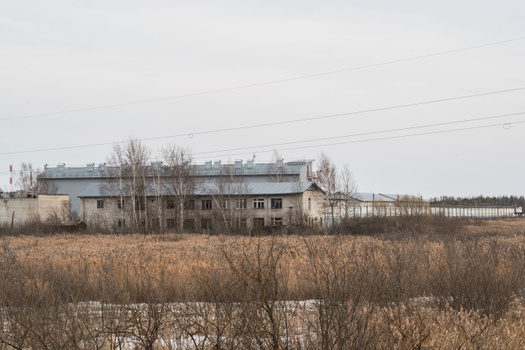
Alexey Navalny is being transferred to a prisoners’ hospital notorious for abusing inmates
Мы рассказываем честно не только про войну. Скачайте приложение.
Following reports of Alexey Navalny’s health deteriorating critically amid his prison hunger strike, Russian prison officials announced on Monday that the opposition politician is being transferred to a prisoners’ hospital in the Vladimir region. The hospital is located on the grounds of Correctional Facility No. 3 — a notorious prison where inmates have reported experiencing torture and abuse inside the medical ward. One former inmate said that patients who protest the prison hospital’s conditions are beaten up and tied to their beds for days on end.
Opposition politician Alexey Navalny is being moved to a hospital for prisoners in the Vladimir region, local Federal Penitentiary Service (FSIN) officials announced on Monday. The hospital is located on the grounds of Correctional Facility No. 3 (IK-3). Prison officials described Navalny’s condition as “satisfactory,” adding that he is being examined by a general practitioner daily. Navalny, who has been on hunger strike since March 31, is now receiving “vitamin therapy” apparently with his consent. Asked about the critical state of Navalny’s health, Putin’s spokesman Dmitry Peskov said on Monday that the Kremlin isn’t involved in “monitoring the health of Russian prisoners.”
Correctional Facility No.3’s hospital has faced allegations of prisoner abuse. In an interview with Vot.tak.tv, former inmate Dmitry Mudrichenko said that the hospital’s patients are beaten “for the slightest misdeed or inadvertent mistake.” He described the hospital wards as stuffy cells with closed windows, holding five to eight inmates who aren’t allowed to lie down during the day. Apparently even leaning on the beds is forbidden. Sometimes exceptions are made for an hour or an hour and a half at a time, Mudrichenko said (he called this a “quiet hour”). Those who try to protest the hospital’s conditions are beaten up and then tied to a bed for several days, preventing them from going to the toilet on their own.
The prisoners’ hospital has also faced allegations of torturing inmates, as the outlet Daily Storm reported in 2018, citing several prisoners. According to the outlet’s sources, inmates collaborating with the prison administration torture other prisoners with electric shocks, allegedly for the purpose of “re-education” or in connection with ongoing investigations. Former inmates said that those who can’t withstand the torture end up signing whatever documents the prison administration or state investigators put in front of them. Apparently the torture usually takes place in the prison hospital’s psychiatric ward.
Navalny’s associates have announced an upcoming nationwide protest in support of the imprisoned politician, though the Russian authorities are warning people against attending the rallies. After Team Navalny announced that they were moving forward with the next round of demonstrations, the Russian Interior Ministry issued an official warning about the risk of contracting COVID-19 in crowds, as well as the potential danger of “provocations by destructive persons” at the rallies. People who law enforcement deem responsible for “aggressive” actions during the protests “will be detained and held accountable as prescribed by law,” the statement said. In turn, the Russian Attorney General’s Office issued its own warning reminding would-be protesters that if they are accused of involvement in “mass riots” they will face criminal charges.
Also on Monday, the Moscow City Court registered a lawsuit by the prosecutor’s office on banning Alexey Navalny’s political and anti-corruption network as “extremist organizations.” This includes the Anti-Corruption Foundation (FBK), the Citizens’ Rights Protection Foundation (both of which Russia’s Justice Ministry has already designated as “foreign agents”), and Navalny’s nationwide network of campaign offices. Pre-trial preparations for the lawsuit are set to begin on April 26 (the court has yet to schedule a date to review the claim). Upon filing the claim on April 16, Moscow prosecutors accused Navalny’s organizations of plotting to overthrow power in Russia by staging “color revolutions.”
Story by Pyotr Lokhov
Translation by Eilish Hart